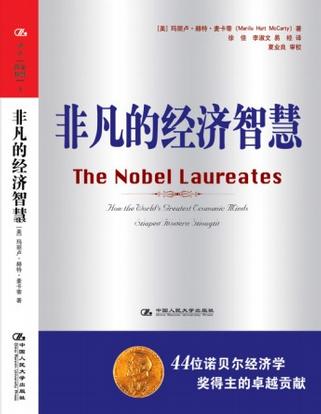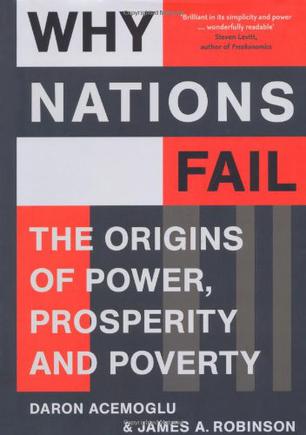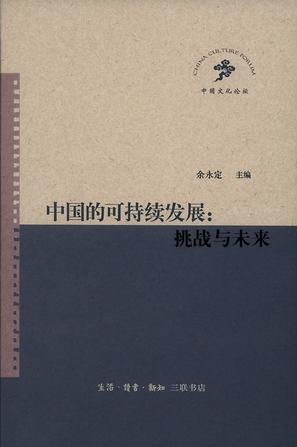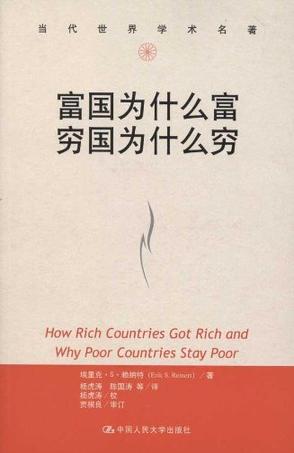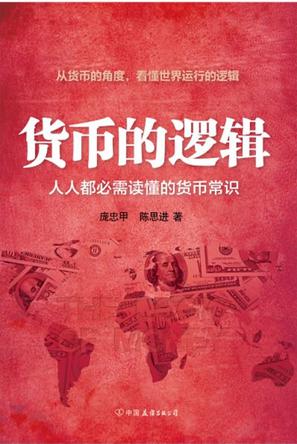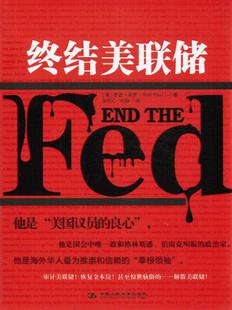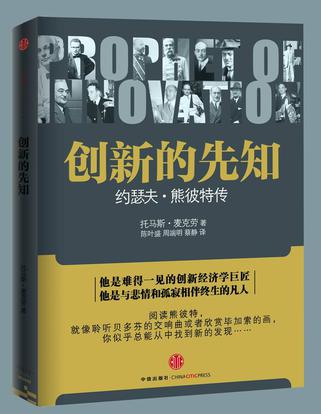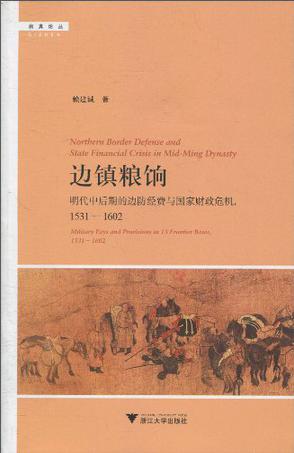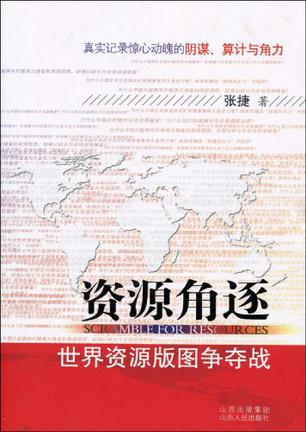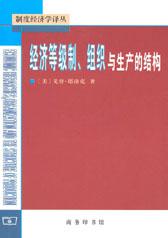欢迎来到相识电子书!
标签:经济
-
非凡的经济智慧
萨谬尔森的“混合经济思想”至今仍是中国经济政策制订的主导; 弗里德曼的自由主义思想深刻地影响着中国人如何避免在宏观调控中变成计划经济; 刘易斯等人创立的发展经济学很快让中国人明白了二元结构是发展中国家的最主要特征,中国要发挥好劳动力资源丰富的优势…… 这些闪闪发光的名字就像天上的星星,照亮着中国的天空,对中国的发展具有重要的借鉴意义;他们经邦之宏论,济世之方略无疑给了你一双慧眼,帮你解开众多经济现象背后的迷局。是什么让这44位经济学家摘取了经济学桂冠上的明珠?他们在求知的道路上是如何影响世界?在他们的思想背后存在着怎样的根源? 本书收集“时势造英雄”之世界顶级经济学家的点滴,将经济理论、哲学、历史、个人传记完美融合在一起,为你打开一扇了解当今经济思潮形成过程的窗户…… -
100个伟大的商业理念
《100个伟大的商业理念:来自世界500强的全新案例》先进的理念:理念是行动的指南,先进的商业理念带来卓越的商业业绩。100个精彩理念,100条商业哲理,100盏指路明灯。全新的案例:100个理念的现实源头及案例全部来自于世界上最优秀的顶尖公司,全部为500强企业,有强大的现实支撑与典范效应,作为2008初版、最新,书中的案例是全新的,这对于此类图书中陈旧的案例无疑是一个极大的超越。 轻松的体例:小引或按语(以一段简明而生动的文字引出本则理念),理念详析(含义、案例),练习(为读者设置与该理念相关的情景、模式、氛围,指导读者如何将本节提到的商业理念运用到实际工作中,并提出解决方案),即看即学,即学即用,保证你在任何时间与环境下,都可以实现独立而快速的阅读。 -
斯蒂格利茨经济学文集(1-6卷)
《斯蒂格利茨经济学文集(共8册)》主要内容:斯蒂格利茨教授是当今世界上最负盛名的经济学家,美国哥伦比亚大学经济学教授。斯蒂格利茨经济学文集(全8册)分6卷出版。第一卷为《信息经济学:基本原理》,第二卷为《信息经济学:应用》,第三卷为《微观经济学:不确定性与研发》,第四卷为《宏观经济学:增长与分配》,第五卷为《公共财政》。第六卷《发展与发展政策》。 斯蒂格利茨教授是当今世界上负有盛名的经济学家,美国哥伦比亚大学经济学教授。他1943年生于美国印第安纳州,1960年考入美国东部著名大学———阿赫斯特学院(Amherst College),毕业后在美国麻省理工学院(MIT)进修经济学,师从保罗?萨缪尔森,获美国麻省理工学院博士学位,年仅26岁即成为耶鲁大学经济学教授,此后他先后执教于普林斯顿大学和斯坦福大学。1979年获美国经济学会专为40岁以下有杰出贡献的青年经济学家设立的克拉克奖。1993年至1997年在克林顿政府经济顾问委员会任职,先为成员,后任主席。1997年至1999年担任世界银行高级副行长兼首席经济学家。斯蒂格利茨教授为信息经济学的创立做出了重大贡献,2001年由于他在“充满不对称信息市场的分析”理论研究上的突出贡献而荣获诺贝尔经济学奖。 传统的经济学分析模式或多或少地把市场假设为一个完美的市场,讨论的重点是理性人在完美市场的行为。这显然与现实生活中的失业和经济衰退的不完美相去甚远。 斯蒂格利茨改变了这一陈旧的分析模式,把经济分析引入了一个全新的领域——在信息不完美条件下的市场模式和微观经济主体的行为模式。斯蒂格利茨教授的研究为信息经济学的诞生奠定了基础。 -
我是如何弄垮巴林银行的
自序 通常,在一本书的开头,作者都要写上一篇简短的献词,但是, 我并不打算这么做,因为写这本书的目的只是重录我的生命中并不怎 么光彩的一段经历,再现一段我一直想要忘却的历史,因此,我觉得 ,没有必要也不应该把它献给任何人。 既然如此,那么我便借了写这本书的机会,着重展现一些事件的真实面貌。譬如,在书中,我引用了英格兰银行的报告,但那并不意味着我同意其中的观点。并不是这样的。那份报告只不过废纸一一张──跟新加坡提交的那一份报告比起来,它让人感到羞愧。 另外,我认为还有必要问英格兰银行和“打击严重欺诈行为办公室”(SFO)几个层次较高的问题。他们对这些问题都避而不谈,譬如,在巴林银行倒闭后,为什么还会引起五千五百万英镑的货币损失?那些所谓的“专家”是否有能力对那些货币进行有效的套做交易?或者他们只是在进行赌博? 我没有被遣送回英国去接受审讯,这其中有好几个原因。我不想谎称我对此决定背后的内幕不知或者不懂。但我想告诉大家这么一个事实:新加坡政府在他们提交的报告中提出,他们被禁止接触英国人掌握的大部分能用作证据的文件。而在我被扣留在德国期间,SFO所 做的陈述与此正好相反。 写本书的目的并不在于暴露内幕。但是我仍怀疑它会导致新闻媒体的热烈炒作,就像读者们常常见到的那样。只是这一次的故事却是 完全真实的。在写这本书时,我一直坚持着“真实”的原则,以告诉 读者事情的真实面目。书中提到的一些人可能会因为我的描绘方式感 到不安,但是,在将书读过多遍之后,我觉得我的描绘应该是公正的。为了不伤害别人,我在书中两次使用了化名。好在这两个人算不上 书中的主要人物,也不会想到我会在这本书中提及他们。所以,我想 这个处理方法应该是妥当的。 借此机会,我想向一些人表达我的谢忱。首先我要感谢爱德华怀特利先生,是他帮助我写成了这本书。这不是件容易的事,但是监狱当局格外帮忙,允许他一次一次地来探视我。但愿他日后一切顺遂。 我还想对我的律师们表示感谢,尤其是史蒂芬波拉得、阿伯哈特凯普夫和爱娃丹宁弗尔德。是他们接了我的案子,帮我打完了那场官司。第一次入狱时,有人对我说:“现在你可以看出谁是你的朋友了。”这绝对是至理真言。朋友们的帮助和支持使我深受感动。但是,我又无法一一回信──朋友们的来信实在大多了──我只能在此感谢所有给我写信的人。我未曾收到过指责我或批评我的信,但我确实对我以前引为“朋友”的一些人感到深深的失望。尽管大多数朋友都抗拒了悬赏的诱惑,但还是有叁个人将自己出卖给了报社,我不想说出他们的姓名──我不想将自己降低到他们的等级──但是,我想,他 们一定会为自己的行为感到羞愧难当的。 我想感谢我所有的家人和所有的好友,他们一如继往地支持着我。他们的爱是我的精神支柱。要是没有他们的爱和帮助,我肯定无法坚持到现在。这又谈何容易!对我而言,适应现在的环境是一个漫长而艰难的历程,但是,你们之中的每个人都给了我不小的帮助,让我终于重新站了起来。 最后,我要对我的妻子丽沙说声“谢谢”。在整件事情中,她都是我的力量泉源,在我处于人生低谷的时候,她总是不断地激励着我。现在,我唯一的愿望就是安心服刑,尽快回到她的身边。我是世界上最骄傲的丈夫。 -
Too Big to Fall
In August 2007, the I-35W Bridge in Minneapolis collapsed, killing 13 people and injuring 145 others. Investigations following the tragedy revealed that it was not an unavoidable accident, but one that could have been prevented--and one that threatens to be repeated at many thousands of bridges located across the nation. Already more than 50 percent of our bridges are past their intended lifespan. Using the I-35W Bridge as a starting point, LePatner chronicles the problems that led to that catastrophe--poor bridge design, shoddy maintenance, ignored expert recommendations for repair, and misallocated funding--and then explores the responses to the tragedy, including the NTSB document which failed to report the full story to our nation. From here LePatner evaluates what the I-35W Bridge collapse means for the country as a whole--outlining the possibility of a nationwide infrastructure breakdown. He exposes government failure on a national as well as state level, uncovering how our nation's transportation system prioritizes funding for new projects over maintenance funding for aging infrastructure. He explains the imperatives for why we must maintain an effective infrastructure system, and how it plays a central role in supporting both our nation's economic strength and our national security. Written both for those who can effect change and for those who must demand it, Too Big to Fall presents an eye-opening critique of a bureaucratic system that has allowed political best interests to trump those of the American people. -
Diary of a Very Bad Year
The First Book from n+1 —an Essential Chronicle of Our Financial Crisis HFM: Where are you going to buy protection on the U.S. government's credit? I mean, if the U.S. defaults, what bank is going to be able to make good on that contract? Who are you going to buy that contract from, the Martians? n+1: When does this begin to feel like less of a cyclical thing, like the weather, and more of a permanent, end-of-the-world kind of thing? HFM: When you see me selling apples out on the street, that's when you should go stock up on guns and ammunition. -
Why Nations Fail: The Origins of Power, Prosperity and Poverty
Aprovocative new theory of political economy explaining why the world is divided into nations with wildly differing levels of prosperity Why are some nations more prosperous than others?Why Nations Fail sets out to answer this question, with a compelling and elegantly argued new theory: that it is not down to climate, geography or culture, but because of institutions. Drawing on an extraordinary range of contemporary and historical examples, from ancient Rome through the Tudors to modern-day China, leading academics Daron Acemoglu and James A. Robinson show that to invest and prosper, people need to know that if they work hard, they can make money and actually keep it - and this means sound institutions that allow virtuous circles of innovation, expansion and peace.Based on fifteen years of research, and answering the competing arguments of authors ranging from Max Weber to Jeffrey Sachs and Jared Diamond, Acemoglu and Robinson step boldly into the territory of Francis Fukuyama and Ian Morris. They blend economics, politics, history and current affairs to provide a new, powerful and persuasive way of understanding wealth and poverty. They offer a pragmatic basis for the hope that at'critical junctures'in history, those mired in poverty can be placed on the path to prosperity - with important consequences for our views on everything from the role of aid to the future of China. REVIEWS 'You will have three reasons to love this book. It's about national income differences within the modern world, perhaps the biggest problem facing the world today. It's peppered with fascinating stories that will make you a spellbinder at cocktail parties - such as why Botswana is prospering and Sierra Leone isn't . And it's a great read. Like me, you may succumb to reading it in one go, and then you may come back to it again and again.', Jared Diamond, Pulitzer-prize-winning author of bestselling books including'Guns, Germs, and Steel'and'Collapse' 'For those who think that a nation's economic fate is determined by geography or culture, Daron Acemoglu and Jim Robinson have bad news. It's man-made institutions, not the lay of the land or the faith of our forefathers, that determine whether a country is rich or poor. Synthesizing brilliantly the work of theorists from Adam Smith to Douglass North with more recent empirical research by economic historians, Acemoglu and Robinson have produced a compelling and highly readable book. And their conclusion is a cheering one: the authoritarian"extractive"institutions like the one's that drive growth in China today are bound to run out of steam. Without the inclusive institutions that first evolved in the West, sustainable growth is impossible, because only a truly free society can foster genuine innovation and the creative destruction that is its corollary.', Niall Ferguson, author of'The Ascent of Money' 'This fascinating and readable book centers on the complex joint evolution of political and economic institutions, in good directions and bad. It strikes a delicate balance between the logic of political and economic behavior and the shifts in direction created by contingent historical events, large and small at'critical junctures'. Acemoglu and Robinson provide an enormous range of historical examples to show how such shifts can tilt toward favorable institutions, progressive innovation and economic success or toward repressive institutions and eventual decay or stagnation. Somehow they can generate both excitement and reflection.', Robert Solow, Nobel Laureate in Economics 'It's the politics, stupid! That is Acemoglu and Robinson's simple yet compelling explanation for why so many countries fail to develop. From the absolutism of the Stuarts to the antebellum South, from Sierra Leone to Colombia, this magisterial work shows how powerful elites rig the rules to benefit themselves at the expense of the many. Charting a careful course between the pessimists and optimists, the authors demonstrate history and geography need not be destiny. But they also document how sensible economic ideas and policies often achieve little in the absence of fundamental political change.', Dani Rodrik, Kennedy School of Government, Harvard Universitry 'Two of the world's best and most erudite economists turn to the hardest issue of all: why are some nations poor and others rich? Written with a deep knowledge of economics and political history, this is perhaps the most powerful statement made to date that'institutions matter.'A provocative, instructive, yet thoroughly enthralling book.', Joel Mokyr, Robert H. Strotz Professor of Arts and Sciences and Professor of Economics and History, Northwestern University 'Imagine sitting around a table listening to Jared Diamond, Joseph Schumpeter, and James Madison reflect on over two thousand years of political and economic history. Imagine that they weave their ideas into a coherent theoretical framework based on limiting extraction, promoting creative destruction, and creating strong political institutions that share power and you begin to see the contribution of this brilliant and engagingly written book.', Scott E. Page, University of Michigan and Santa Fre Institute 'In this stunningly wide ranging book Acemoglu and Robinson ask a simple but vital question, why do some nations become rich and others remain poor? Their answer is also simple -- because some polities develop more inclusive political institutions. What is remarkable about the book is the crispness and clarity of the writing, the elegance of the argument, and the remarkable richness of historical detail. This book is a must read at a moment where governments right across the western world must come up with the political will to deal with a debt crisis of unusual proportions.', Steve Pincus, Bradford Durfee Professor of History and International and Area Studies, Yale University 'Acemoglu and Robinson -- two of the world's leading experts on development -- explain why it is not geography, disease, or culture which explains why some nations are rich and some poor, but rather a matter of institutions and politics. This highly accessible book provides welcome insight to specialists and general readers alike.', Francis Fukuyama 'Some time ago a little known Scottish philosopher wrote a book on what makes nations succeed and what makes them fail. The Wealth of Nations is still being read today. With the same perspicacity and with the same broad historical perspective, Daron Acemoglu and James Robinson have re-tackled this same question for our own times. Two centuries from now our great-great-...-great grandchildren will be, similarly, readingWhy Nations Fail.', George Akerlof, Nobel Laureate in Economics, 2001 'Acemoglu and Robinson have made an important contribution to the debate as to why similar-looking nations differ so greatly in their economic and political development. Through a broad multiplicity of historical examples, they show how institutional developments, sometimes based on very accidental circumstances, have had enormous consequences. The openness of a society, its willingness to permit creative destruction, and the rule of appear to be decisive for economic development.', Kenneth J. Arrow 'This not only a fascinating and interesting book: it is a really important one. The highly original research that Professors Acemoglu and Robinson have done, and continue to do, on how economic forces, politics and policy choices evolve together and constrain each other, and how institutions affect that evolution, is essential to understanding the successes and failures of societies and nations. And here, in this book, these insights come in a highly accessible, indeed riveting form. Those who pick this book up and start reading will have trouble putting it down.', Michael Spence 'Why Nations Fail is a truly awesome book. Acemoglu and Robinson tackle one of the most importantproblems in the social sciences -- a question that has bedeviled leading thinkers for centuries -- and offer an answer that is brilliant in its simplicity and power. A wonderfully readable mix of history, political science, and economics, this book will change the way we think about economic development.Why Nations Fail is a must read book.', Steven Levitt, author of Freakonomics 'Why Nations Fail is so good in so many ways that I despair of listing them all. It is an excellent book and should be purchased forthwith, so to encourage the authors to keep working.', Charles C. Mann, author of 1491 and 1493 'In this delightfully readable romp through 400 years of history, two of the giants of contemporary social science bring us an inspiring and important message: it is freedom that makes the world rich. Let tyrants everywhere tremble!', Ian Morris, Stanford University, author of Why the West Rules - For Now 'The authors convincingly show that countries escape poverty only when they have appropriate economic institutions, especially private property and competition. More originally, they argue countries are more likely to develop the right institiutions when they have an open pluralistic political system with competition for political office, a widespread electorate, and openness to new politcial -
中国的可持续发展
《中国的可持续发展:挑战与未来》内容简介:在过去三十年,中国经济持续高速增长,中国目前的人均收入已达到3600美元,进入中等收入国家的行列。但是历史经验证明,一个国家在达到中等收入水平之后,进一步的增长就可能会遇到难以逾越的障碍。中国的旧增长模式所带来的一系列问题使中国国民生活福利水平越来越难以实现本来应有的更大提高.并给中国的未来发展留下严重隐患。为了实现经济的持续增长、实现从中等收入国家向高收入国家的飞跃,中国面临着哪些严重障碍、如何克服这些障碍,这是中国知识界必须认真研究并予以回答的问题。 -
节骨眼,中国经济不往哪里走?
在当前关于中国模式的辩论中,本书作者们从历史、现状、体制、比较等多个角度呈现了缤纷而有力的观点。《节骨眼》和之前相关图书的不同在于,本书中的大部分作者坚定支持市场经济走向,对体制有强有力的分析。尤其是吴敬琏先生,登高一呼,矛盾源于改革不彻底而非改革本身。秦晓认为,所谓特色,究竟是制度缺陷,还是制度创新,值得深思。科尔奈描述了东欧现状,“自由、平等、博爱”之间的两难。中国模式之争,看似概念,却有着明确的现实指向,动车之痛可以说是它的表征。它向我们提出了这样的问题,从更大的时间跨度来看,中国经济的高速发展,有没有摆脱发达国家现代化的一般进程,最终,我们将成就一段奇迹还是幻像? -
经济解释卷二:收入与成本(神州增订版)
《经济解释》作为张五常的经典作品的系列图书,是张五常教授学术巅峰代表作。本书在原版的基础上进行了细致地修订和更新,深入分析了如利息收入、生产成本等经济学领域重要的理论和概念。可读性强。《经济解释(卷2):收入与成本-供应的行为(上篇)(神州增订版)》延续了张教授以经济学现象解释艰深理论的写作风格,以大量生动的案例和最新的实时数据作为理论支撑,从风趣的阅读中获得丰富的经济学知识。 《经济解释(卷2):收入与成本-供应的行为(上篇)(神州增订版)》是《经济解释》卷二,即《供应的行为》上篇,书中根据香港出版的繁体版本进行了修订和补充。《经济解释(卷2):收入与成本-供应的行为(上篇)(神州增订版)》用张教授通俗的语言风格和最新生动的案例阐释了重要的经济理论和概念,如收入、投资、财富、利润、租值、交易费用、利息理论、成本、盈利等。 《收入与成本》是上一版《经济解释》卷二《供应的行为》的前半部﹐因为要把这半部独立成书﹐《收入与成本》变为这一版《经济解释》的卷二。《供应》的下半部﹐取名《受价与觅价》﹐会是《经济解释》的卷三。整套《经济解释》会有四卷或五卷﹐杀到埋身再作打算。 九年多前写《供应的行为》写得太急﹐按期刊登时受到刊物版面的约束﹐不能自由发挥。这次大修﹐再没有这样的约束了。七十五岁了﹐还不尽量把自己多年所学写下来﹐不会再有机会吧。所谓大修﹐其实大部分是重写﹐写得用心﹐写得称意﹐但也写得累了。决定把《供应》一分为二﹐有三个原因。其一是加进去的内容多﹐写得太长﹐而我的经济分析离不开真实世界﹐似浅实深﹐同学们不易消化﹐不能像小说那样读。太厚的书不好翻。其二是写完《制度的费用》那章后﹐我突然发觉那是个很理想的可以稍事憩息的地方﹐好让读者能松弛一阵才攻下一卷。其三是如果不分割﹐写到《供应》下半部我会不断地担心整卷太长﹐有所顾忌﹐感到缚手缚脚。 从本卷起﹐文内提到的卷号﹑章号﹑节号﹐皆以神州增订版为准。希望有一天能把整套《经济解释》以一本精装巨册出版。但那只宜于收藏﹐放在书架上好看。说到阅读﹐轻便的远为优胜。 -
富国为什么富 穷国为什么穷
《富国为什么富 穷国为什么穷》是埃里克·S·赖纳特2007年出版的著作,该书全方位地对国富国穷这一古老的、极富挑战性和吸引力的问题进行了解答。 全书分八章。第一、二章对两种不同的经济思想的发展历程进行了回顾,对主流经济学静态的、脱离现实和不尊重历史事实的缺陷进行了强烈批评。第三章从经济政策史的角度,揭示了西方发达国家富国强国的秘诀。第四和第五章对全球化时代西方国家所主导和推行的自由贸易政策进行了批评。华盛顿共识失败后,主流经济学开始通过气候、疾病等这类非决定性因素为自己的解释失败进行辩解,第六章对这种观点进行了系统批驳。第七章对当前的“治标”经济学的理论和政策进行了剖析。第八章在前文的基础上对落后国家提出了建议。 《富国为什么富 穷国为什么穷》兼具可读性与理论性,适合于所有对国富国穷命题感兴趣的读者,而对发展经济学、演化经济学、政治经济学、经济思想史和经济史等领域的学者,则更具有参考价值。 -
货币的逻辑
钱是怎么来的,钱是怎么没的? 进化得好好的,钱为什么会突然“变异”的? 钱是怎么“造”出来的,又是怎么运行的? 复杂的货币经济理论是怎么演变的? 各类财经政策是怎么影响我们的生活的? 货币是一种怎样的权力,能决定国家的命运? 危机再现,信用货币什么时候会变成“废纸”? 货币,从无到有,从实物货币到纸币再到电子货币,从一般等价物到金融投资再到掠夺大众财富和垄断控制的工具,不是在“进化”而是在“变异”。 你以为你听懂了,往往都是错的。危机时,无数真假专家都在“告诉你”,如果你不懂货币,他们告诉你了,你能分辨吗? 这是一些常识:一切经济变量的变动都与货币有关,一切都在急速变化,你必须不断地学习。 这是一部简史:货币的“变异史”,关系我们的现在,决定我们的将来。 这是一本辅导:读“货币战争”,看“金融危机”,从看热闹到看门道的进阶读本。 这是一种眼光:以货币为放大镜,看懂世界格局和中国经济。 -
终结美联储
大多数美国人认为,美联储是一个不可或缺的机构,但美国共和党众议员罗恩•保罗却给出了相反的结论。在本书中,保罗与两任美联储主席格林斯潘和伯南克之间展开了针锋相对的对话,他以自己的亲身经历揭示了美国金融界与政界之间千丝万缕的联系,对近50年的世界经济局势和美国经济政策给予了详细的分析,并发出最强烈的呼吁:必须终结美联储。 -
创新的先知
《创新的先知:约瑟夫·熊彼得传》的目的在于重温熊彼特的生活和工作,以便我们更好地认识和评价熊彼特这个人及其影响。尽管熊彼特本人对数字十分感兴趣,但《创新的先知:约瑟夫·熊彼得传》不会是一部涉及极多统计数据的作品。不过,在我们认识熊彼特之前,先让我们用一种他很喜欢的快速统计预览法来简单考察一下他的研究对象——资本主义。当今普通美国人的现金收入是1800年时的二十多倍。如果你是美国人,试着想象一下你只花你收入的二十分之一来生活,由此所造成的生活方式的改变很可能让你不得不去种植自己生活所需的粮食,就像你的大多数先祖在1800年所做的那样。 -
边镇粮饷
作者在汗牛充栋的明代史料中﹐挑选出五份史料﹐全面评估明朝在1531-1602年间北方边防部队的兵力(士兵及牲口数目)﹑粮饷以及中央白银拨款以倍数剧增的情形。作者选题眼光之准﹑气魄之大﹑分析之严谨﹑陈述之清晰﹐都令人敬佩不已。我们读明代史料﹐只见明代君臣论及边防时﹐满口甚么“边饷日增”﹑“边事可忧”﹑“规复祖制”﹐然后是连篇累牍难以解读的数据。通过这些数据重构明代财政内的北部边防开支状况﹐诚然是“显而易见”的研究策略﹐只是知易行难﹐迄今为止﹐能够像作者这样就16世纪明朝北部边防的军事财政状况﹑提出如此全面而具体分析的﹐委实不多。该书的贡献﹐是不容低估的。 -
中国
《中国:大趋势·大博弈》内容简介:今后的形势发展,中国主权基金的角色与动向将备受瞩目……对中国而言,大国蝈起最弱的软肋即金融,说得更明白些,即金融人才与金融机制。中国将如何就战略角度,从攻与守两方面,谋定而动,有所对应,将为国际所关注。 华尔街的金融危机是世纪性的,中国的金融契机也是世纪性的。 -
资源角逐
本书分析了世界各国对于资源的角逐,由于自身的利益,都不说明这样的资源竞争,西方是因为资源的掠夺殖民的需要,需要对于世界的愚民;而社会主义的劳动价值论资源的价值不计算才能够得出剥削的剩余价值理论,但是世界的资源实际上是人类的生存权,一个国家最根本的是资源版图,因为领土人口实际上也是资源的一部分。本书对于世界和中国的资源战略进行了深入的思考和分析。本人根据熵的永远增加提出资源有限,全球一体化在资源有限的情况下世界成为了一个封闭的体系,再不是经济学对于世界交流模式下某个国家的开放体系,世界的经济模型出现根本变化,对于大国会产生相对性的效用,对于中国的崛起对于世界资源再分配的格局需要重新考量。 -
见证失衡
《见证失衡:双顺差、人民币汇率和美元陷阱》作为有影响力的经济学家,作者十多年来一直呼吁遏制中国经济的双顺差,理顺中国经济与世界经济的关系,但却并不如愿。今日中美经济关系的严重扭曲,使我们有必要重新审视作者当年的忧虑。《见证失衡:双顺差、人民币汇率和美元陷阱》遴选其三十多篇代表作品,以年代为序,试图表现作者一脉相承的见解,同时也表达了一个经济学家敢于反思研究历程并接受历史检验的勇气。 -
风险、不确定性与利润
《风险、不确定性与利润》的目的在于改进而不是重建,是一种“纯理论”的研究。这种表达的背后动机有两个。第一,面对当前这个时代讲求实用和平庸的趋势,特别是我们这个国家思想上的特点,笔者本人希望,在社会问题领域中进行缜密的思考,对人类的福祉终究会有些意义。第二,笔者有种感觉,这个时代的“实用主义”只是一个过渡阶段,在某种程度上甚至只是一种姿态而已,即还存在一股对粗疏和浅薄思想的强烈不满的暗流和一种完全出于知识自尊的、对表述思想的流行学理与术语有更清晰的理解的真实渴求。《风险、不确定性与利润》会在合适的地方首先对这些假定进行适当的阐述或辩说。 -
经济等级制、组织与生产的结构
《经济等级制、组织与生产的结构》内容简介:塔洛克在经济等级制、组织与生产的结构,一书中对官僚体制的政治工业组织的经济进行了比较,对在不同制度约束条件下运行的等级制的性质作了透彻而精辟的分析这本书中运用的工业组织文献中的核心观点是。交易成本对于企业的出现,企业的规模、企业的市场分布,以及企业的内部组织都具有重要意义。这些文献的起点就是罗纳德·科斯1937年论述企业性质的有重大影响的论文。 塔洛克利用该洞见表明,公司的经济效率优于改府机构。他指出,即使公司是按等级制组织起来的,公司的效率也要受到资本市场和外部的劳动力市场的监督;企业的接管、合并、买断和卖断。为效率不高的公司提供了进行内部重组的灵活机制。对于效率不高的官僚机构,不存在这类可用于监督和重组的控制机制。公共官僚机构唯一可用的机制是内部激励,而这些激励在实践中极少得到有效的利用。
热门标签
下载排行榜
- 1 梦的解析:最佳译本
- 2 李鸿章全传
- 3 淡定的智慧
- 4 心理操控术
- 5 哈佛口才课
- 6 俗世奇人
- 7 日瓦戈医生
- 8 笑死你的逻辑学
- 9 历史老师没教过的历史
- 10 1分钟和陌生人成为朋友

